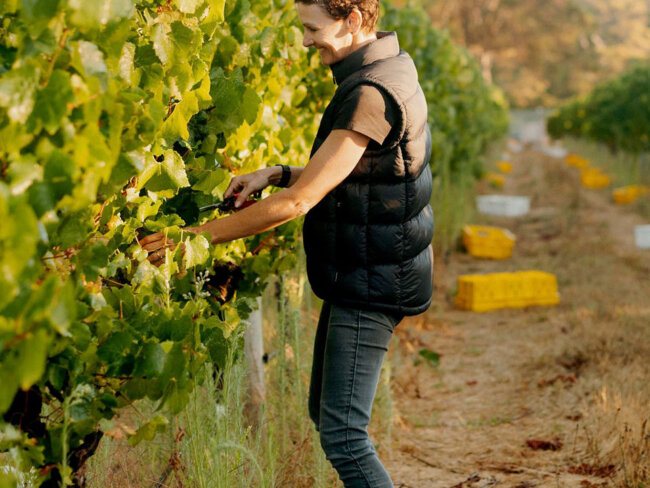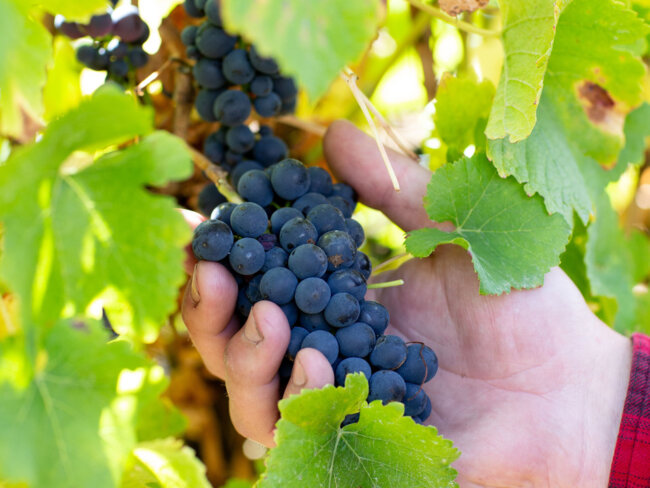467 Twenty Four Road, Margaret River
Claudia Gant has evolved the 467 Twenty Four Road vineyard – established by her father Graham Lloyd in 1998 – with a rich tapestry of varieties, from Margaret River’s renowned chardonnay and cabernet sauvignon to the less traditional, such as arneis, alvarinho, and touriga nacional. Tucked away in the southern reaches of Margaret River, the cool climes of Karridale, shadowed by the influence of the Southern Ocean, offer a unique microclimate. Combined with Claudia’s vineyard architecture, this delivers grapes of high natural acidity, providing a suite of options for a natural approach in the winery. Here, the fruits of Claudia and Matt Gant’s labor not only fuel their own ‘Gant & Co’ label but also five other local wineries, Domaine Naturaliste, Howard Park, Flametree, Byron and Harold, and Skigh Wine.










